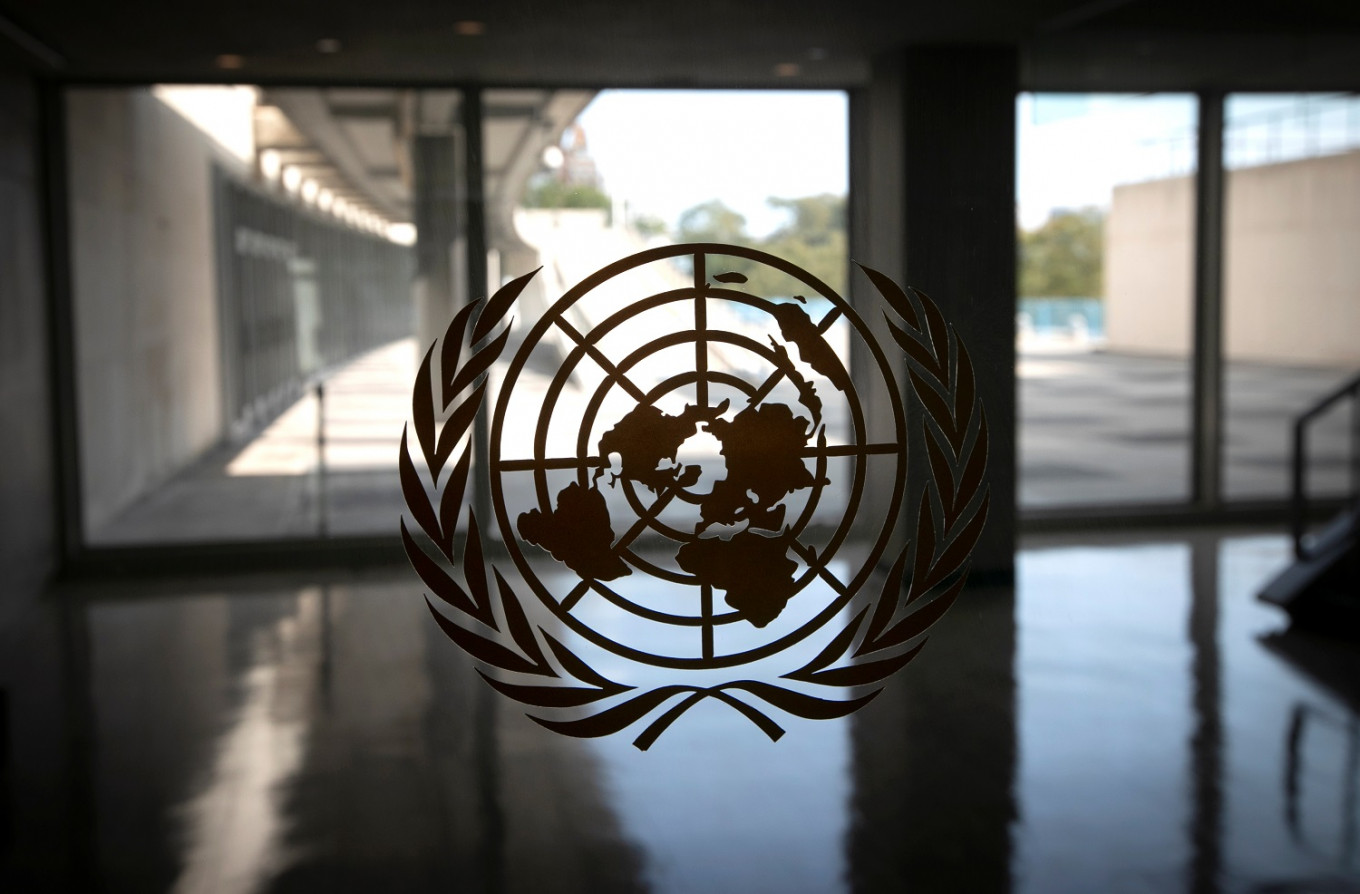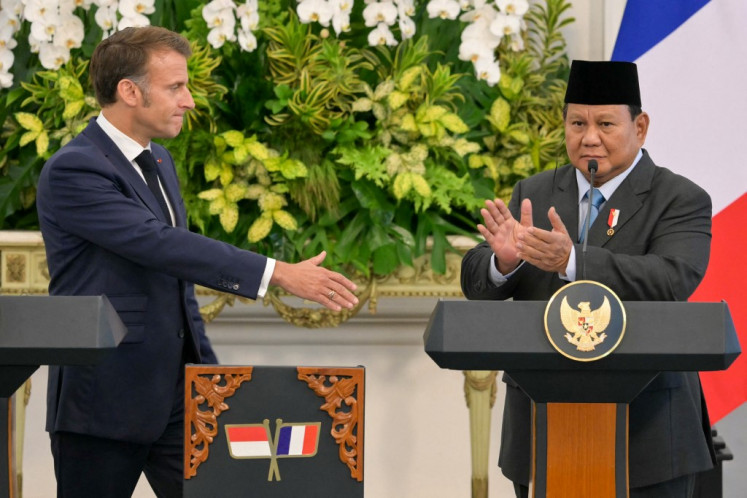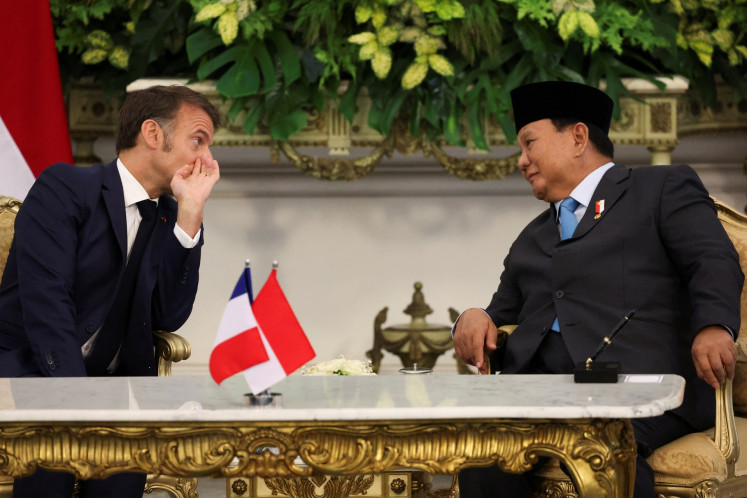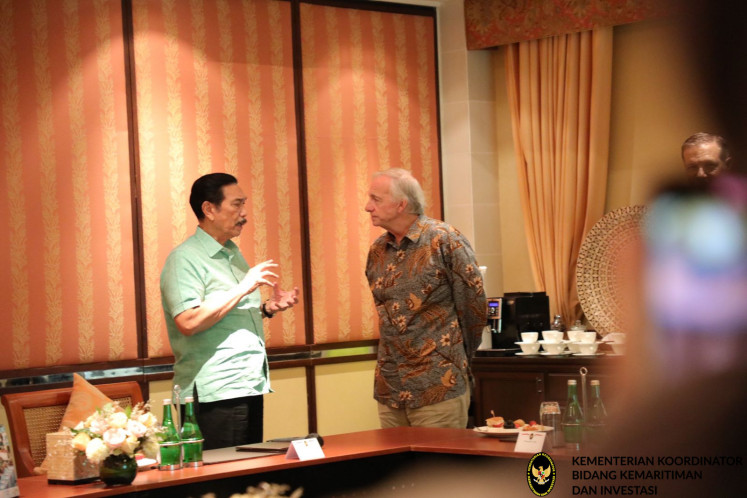Pandemic marks revival of multilateralism, but challenges remain
During the pandemic, this rivalry has pervaded into a negative competition of vaccine efficacy and negative campaigns against each other’s vaccine products.
Change text size
Gift Premium Articles
to Anyone

J
an. 20 marked another milestone for the United States and multilateralism, not only because Joe Biden and Kamala Harris were sworn in as president and vice president of the US, but also because of their commitment to rejoining the Paris Climate Agreement, the largest international effort to curb global warming.
Biden signed his first executive orders to impose a mask mandate on federal property and rejoin the Paris accord.
Such commitment signals the US’ shift toward multilateralism, whereby as an important player in the global geopolitics, the US once again puts its faith in intergovernmental efforts to address one of the most concerning global challenges faced by citizens of the Earth, namely climate change.
It is safe to say that the whole world is watching this rapid change and has high hopes for the US to help rebuild multilateralism. But is it fair enough to rely only on the US’ endeavors? Will depend solely on one specific actor of multilateralism be against the spirit of multilateralism itself?
Multilateralism is a collective, cooperative action by states to deal with global multifaceted challenges and problems. It should not be a “one-man show”, but a collective endeavor to reach a common goal and to address global problems.
In today’s context, in order for multilateralism to remain relevant, it must become an indisputable part of global solutions to the COVID-19 pandemic. As of Monday, more than 103 million have contracted the virus with more than 2.2 million deaths. It is crucial for the multilateral system to send a global message of optimism that multilateralism works in delivering a solution to the COVID-19 pandemic.
Despite its importance, multilateralism continues to face serious challenges, at least on four fronts.
First, multilateral institutions are increasingly struggling to respond to global challenges such as the outbreak of COVID-19, which leads to the weakening of trust in multilateralism. If such a situation persists, “the mighty takes all” approach will prevail.
Second, the rise of unilateralism and the growing rivalry between great powers. During the pandemic, this rivalry has pervaded into a negative competition of vaccine efficacy and negative campaigns against each other’s vaccine products.
Third, the consequences of the COVID-19 pandemic have exacerbated many challenges in the world and created new emerging ones in the social, economic and political sectors, including terrorism, cybercrimes, illicit arms trade and human trafficking, to name a few. According to a 2020 UN Secretary-General report, the COVID-19 pandemic may also incentivize violence and conflict to rise and gain momentum.
Fourth, it is increasingly hard to find the direct impact of what has been decided in multilateral forums on the grassroots level. In other words, there needs to be a better linkage between the policy level at multilateral forums and its impact on people’s daily lives.
All these pertinent challenges could not be addressed only with a “business as usual” approach, but with a more effective multilateralism. The whole-approach for reform is necessary to perceive the optimal results of multilateralism.
Since the UN is the largest intergovernmental organization that has ever existed, it is the most appropriate platform to pursue this reform. Strengthening international cooperation particularly on the three pillars of the UN — peace and security, development and human rights — is in the interest of all to reflect the realities of the 21st century.
UN Secretary-General Antonio Guterres stressed the need for more effective multilateralism, with vision, ambition and impact. He also insisted that the UN must transform into a more nimble, effective, flexible and efficient organization. That is why he aspires to reform the UN in ambitious ways to better serve the people.
In the same vein, the president of the 75th session of the UN General Assembly, Volkan Bozkir, believes that in the current context, it is more crucial than ever that our efforts are efficient and effective and that the UN is fit for purpose, so the organization can best deliver for those it serves.
The effectiveness of the UN and all its bodies is important not only to the reputation of the UN as a whole but also to individual member states and their rightful constituent: the people.
In our view, the success of any reforms of course depends on the meaningful impacts and progress it can bring to the table. Accordingly, at least these are several clusters that can be pursued in taking the UN reform forward. First, changing our approach is a must. A people-centered UN is needed to bring about direct impacts and real progress at the grassroots level. The UN system must go beyond rhetoric. Its programs must be meaningful and impactful. In addressing the pandemic, for the short term, facilitating access to affordable medication and vaccines to all is crucial.
Second, multilateralism needs to be more inclusive, representative and open to the voices and participation of other stakeholders, including regional and subregional organizations, non-governmental organizations, civil society, the private sector, academics and parliamentarians to ensure an effective response to our common challenges.
Third, prioritize conflict prevention over conflict management. Fourth, prioritize rebuilding the trust deficit in the rules-based global order and the core principle of cooperation. Fifth, the UN must remain fit-for-purpose and better able to anticipate the future. This requires a UN that is efficient and adaptive to a changing world, with a strong early warning capacity.
Lastly, it is always relevant to repeatedly echo the importance of multilateralism, especially to test its significance during this pandemic.
We all want a more effective multilateralism that can bring about real solutions to the problems of our times today and help end the pandemic. If we believe that multilateralism works and delivers, we must give this process a chance.
***
Ahmad Almaududy Amri is an adviser on the United Nations reform, budget and legal affairs in the Office of the President of the 75th session of the General Assembly, United Nations Headquarters in New York, the United States. Purna Cita Nugraha is the deputy director for Middle East Affairs in the Foreign Ministry and former diplomat at the Indonesian Mission to the United Nations in New York. The views expressed are their own.









